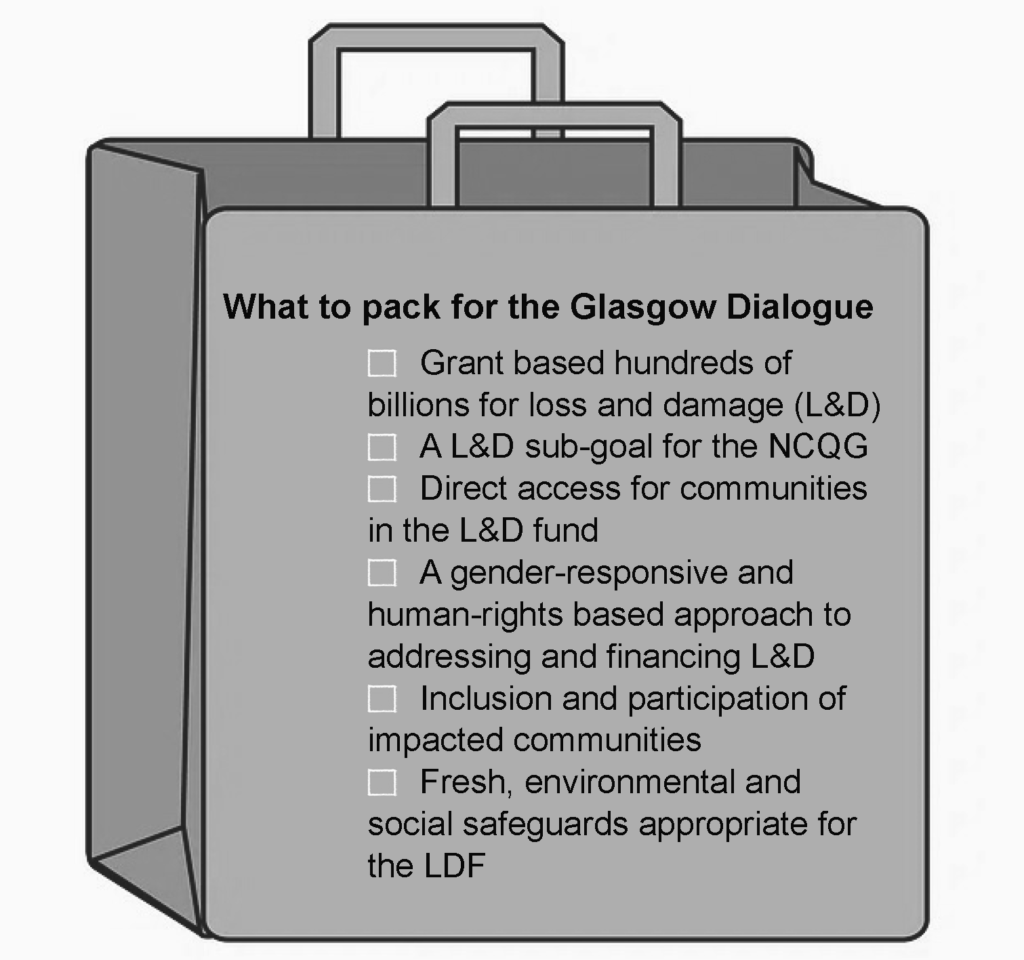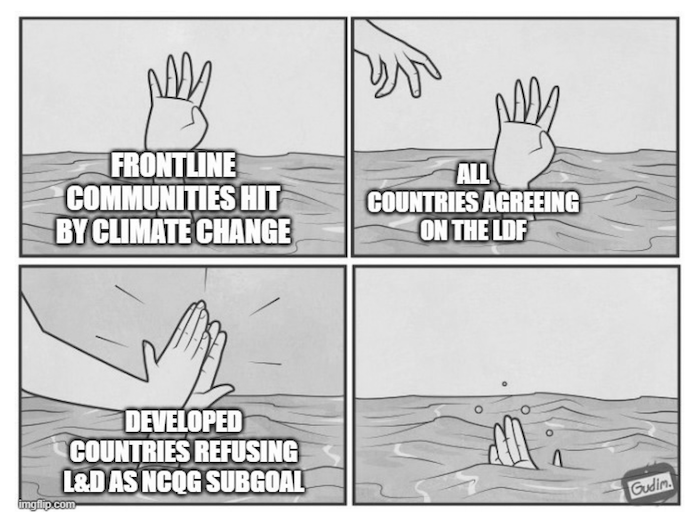Annual GST Dialogue: Parties, it is time to draft your NDCs, with Ambition of course!
The Annual Global Stocktake (GST) Dialogue starts today. The purpose of this process is to support the continuation of the GST, by implementing its recommendations. ECO is not a Party but did work on the NDCs we need to see presented next year. This is a matter of justice and survival of many ecosystems and human lives: we need to keep the 1.5°C scenario as a key priority before 2030.
First, NDCs in 2025 must go further than the GST, with economy-wide absolute emission reduction targets and sectoral objectives, and also transparency and tracking processes. Accountability is key for climate action both for Parties but also non-party stakeholders.
Secondly, the next NDCs must reflect equity between Parties. Fair shares include fair domestic emissions reductions and, for countries with higher capacity and responsibility, fair financial support.
Thirdly, it is vital that NDCs translate the global commitments made under the GST to the national level. The GST agreed measures to transition away from fossil fuels, triple renewable energy capacity and double energy efficiency improvements by 2030, and to halt and reverse forest degradation and deforestation this decade. NDCs can be a chance for Parties to show how they are integrating action domestically to contribute to these global goals while prioritizing a pathway of clean economic development, supported by international finance.
... Read more ...


